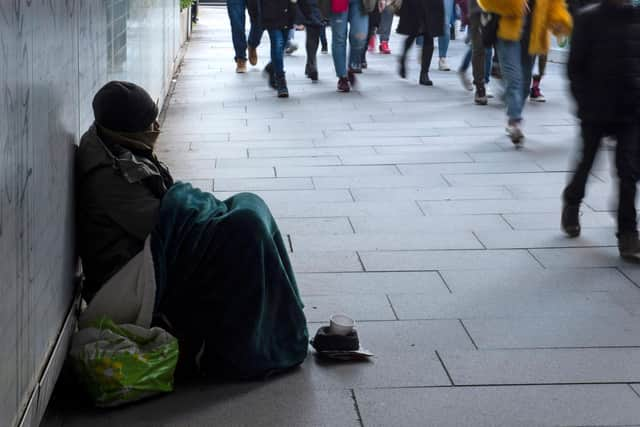Homelessness services in Wigan and elsewhere at crisis point, warn leaders
and live on Freeview channel 276
Since 2017, Greater Manchester’s 10 councils and the Mayor of Greater Manchester have been at the forefront of efforts to end rough sleeping and prevent homelessness nationally.
The number of people sleeping rough on a single night in 2022 was 62 percent lower than the peak in 2017 and Greater Manchester consistently achieves better results than the national average on rough sleeping.


Advertisement
Hide AdAdvertisement
Hide AdHowever, 2022 also saw the official rough sleeper count for Greater Manchester rise for the first time in five years by 13 percent to 102 cases and in August 2023 the numbers rose further at 145 cases. It is expected that the official count which takes place next month will see numbers increase even more.
These increases have happened despite multi-million pound investment in the city-region’s homelessness responses, the hard work of the councils and the strategic direction and investment of the Department of Levelling Up, Housing and Communities (DLUHC), from A Bed Every Night to Housing First.
The worrying increase is a result of a range of factors, including unique immediate problems, and longer-term challenges placing pressure on the homelessness system which is now coming to a head.
These include three key areas where there are a record number of people requiring support from their council: record pressures in homelessness support services, increasing "no fault evictions", and the clearance of the asylum backlog placing undue strain on support services.
Advertisement
Hide AdAdvertisement
Hide AdA report approved by Greater Manchester Combined Authority (GMCA) leaders has put forward a range of proposals to help mitigate the challenges posed by circumstances outside local control, such as unfreezing Local Housing Allowance (LHA) in the upcoming autumn statement, and increasing investment in homelessness and rough sleeping responses.
Paul Dennett, the GMCA’s portfolio lead for homelessness, said: “I’ve been immensely proud of our record here in Greater Manchester, seeing year on year reductions in rough sleeping since 2017.
"Our councils, housing providers, health, probation services, Greater Manchester Police and our voluntary and faith sectors have all come together to work collaboratively with our two missions of reducing rough sleeping by getting people the support they urgently need and a roof over their head, and to prevent people from becoming homeless in the first place.
“I’m therefore saddened to see that despite all our best efforts, the numbers are now going up because of decisions made by central government but it is left to cash-strapped local government to pick up the pieces.
Advertisement
Hide AdAdvertisement
Hide Ad“I wrote to the Home Secretary in June outlining Greater Manchester’s concerns about the cumulative impact government policy decisions over many years have had on homelessness and rough sleeping from asylum policy to the freezing of Local Housing Allowance rates. I will be writing again to the government to make clear our concerns with current Home Office policies and the devastating impact it is having on increasing homelessness in our towns and cities.”
